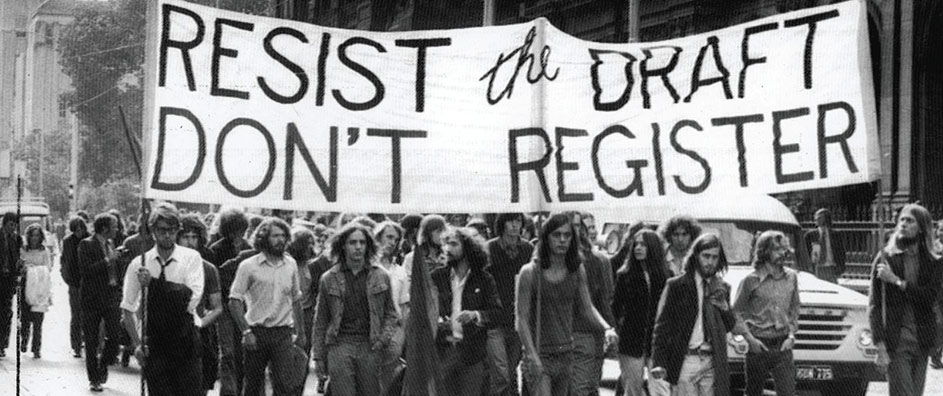In the realm of spiritual discourse, the concept of conscientious objection manifests as a profound moral stance, resonating deeply within the framework of Bahá’í teachings. At its core, the prayer entitled “Let No Soul Slay Another” serves as a poignant invocation, urging humanity to eschew violence and embrace the principles of compassion and unity. This article delves into the salient themes articulated within this prayer, illuminating its philosophical underpinnings and its relevance in contemporary society.
To understand the essence of this prayer, one must first grapple with the broader Bahá’í viewpoint on peace and conflict. The teachings of Bahá’u’lláh unequivocally advocate for world peace. The notion of a conscientious objector emerges as an individual who, grounded in spiritual convictions, refrains from participating in acts of violence or warfare. This moral position is not merely an avoidance of physical conflict but rather an active commitment to uphold the sanctity of human life, echoing the prayer’s central plea that no soul should slay another.
At its inception, the prayer invokes a sense of divine solicitude, requesting divine guidance for humanity to overcome the abyss of hatred and animosity. The phrase “Let No Soul Slay Another” encapsulates a universal yearning for peace, urging individuals to reflect upon the repercussions of their actions. Violence begets violence; thus, the prayer implores adherents to recognize their interconnectedness and the shared responsibility of fostering harmony.
In the contemporary socio-political landscape, this prayer addresses a pervasive observation: the proclivity for conflict has seemingly become an inherent aspect of human interactions. Wars wage not only on distant battlefields but also within communities, families, and even individuals’ hearts. The Bahá’í teachings provide a fertile ground for introspection, encouraging individuals to question the societal norms that valorize aggression and nurture a culture of retribution. By invoking this prayer, Bahá’ís are called to transcend societal prejudices and embrace a paradigm of collective empathy and understanding.
The prayer further serves as a clarion call against the moral justification often bestowed upon acts of violence. It challenges the dogma that equates strength with brutality. Through the lens of the Bahá’í faith, true strength resides in the capacity for forgiveness, understanding, and the pursuit of justice devoid of vengeance. The teachings underscore a transformative vision where love supplants enmity, navigating humanity towards spiritual enlightenment and communal upliftment.
Embedded within the prayer is a profound acknowledgment of the fragility of human life. The Bahá’í worldview posits that every soul embodies an aspect of the divine, thus invoking a sanctity that demands reverence. The recurrent motif of divine love serves as a reminder that violence not only inflicts physical harm but also diminishes the collective spiritual essence of humanity. Each act of violence can be seen as a symbolic desecration of one’s spiritual potential, diminishing the collective ability to evolve and flourish as a species.
This prayer also functions as an antidote to the pervasive cynicism that often prevails in discussions surrounding war and peace. In an age marked by geopolitical strife and social fragmentation, there exists a profound need for voices that champion unity. The Bahá’í principles advocate for the establishment of a global ethic predicated upon cooperation and collaboration. It is within this context that “Let No Soul Slay Another” emerges not merely as a liturgical utterance but as an embodied practice, compelling believers to enact principles of peace in their daily lives.
Further contemplation reveals that the prayer not only appeals to the individual but also addresses collective societal behaviors. It necessitates a re-evaluation of cultural narratives that perpetuate cycles of violence. Education, therefore, becomes a pivotal tool in actualizing the prayer’s aspirations. Educational initiatives that emphasize conflict resolution, emotional intelligence, and the value of life can catalyze a paradigm shift, fostering a generation attuned to the principles of the Bahá’í faith.
Moreover, the communal dimension of Bahá’í teachings reinforces the significance of collective action in combating the malaise of violence. Community engagement and open dialogues serve as crucial platforms for individuals to confront issues of conflict within their environments. By fostering an ethos of dialogue and understanding, communities are empowered to devise solutions rooted in compassion rather than animosity. The prayer resonates with this communal spirit, as it is not solely an individual commitment but a collective striving towards a shared ideal.
In conclusion, “A Conscientious Objector’s Prayer – Let No Soul Slay Another” encapsulates a profound ethical imperative at the heart of Bahá’í teachings. It calls upon individuals not only to renounce violence in their own lives but to actively participate in the cultivation of peace within society. By engaging with the prayer’s teachings, adherents are invited to embark upon a journey of self-reflection, accountability, and proactive peace-building. The resonance of this prayer extends far beyond the confines of religious expression; it represents a fundamental aspiration towards a harmonious world, where understanding supplants hostility, and every soul is revered in its inherent dignity.
